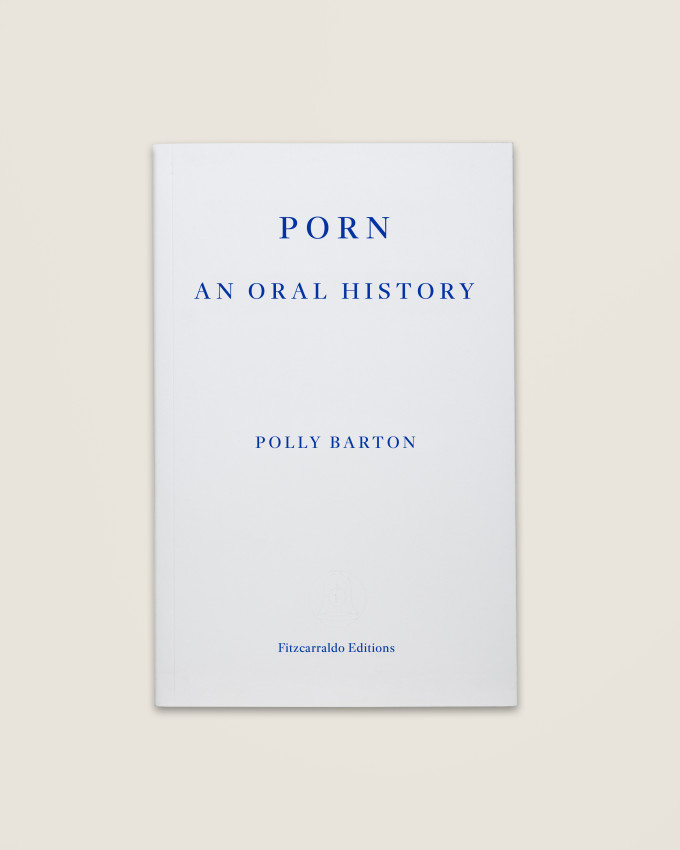While the cultural sphere is engaged in displays of inclusivity, positive representation and post-#MeToo feminism, billions of people are slumped over their smartphones, feeding the monster under society’s bed
Porn tells tales on society. Often, they are tales society would prefer not to hear. Here’s one: according to the annual statistical breakdown released by the website Pornhub for 2022, women are avid consumers of hardcore pornography, almost thirty percent more likely than men to search for ‘gangbang’ videos. Here’s another: porn is the unsightly shadow of identity politics, the monster under the bed that feeds on the repressive tendencies of contemporary morality and the innately fetishistic nature of organising people into demographic categories. In the realm of porn, the cultural obsession with representation is stripped of the language of equity and emancipation – and turned into fodder for fantasies of objectification and exploitation. As of March 2023, Pornhub was the twelfth most visited website in the world, with more traffic than Amazon, TikTok, Netflix or any mass-media outlet. At the same time that the cultural sphere is engaged in displays of inclusivity, positive representation and post-#MeToo feminism, billions of people are slumped over their smartphones, masturbating to whatever depraved content the algorithm has pushed their way.
Writer and translator Polly Barton’s Porn: An Oral History is not so much an attempt to navigate the political and erotic minefield of contemporary porn as it is an attempt to talk about it at all. Despite describing herself as a progressive, sex-positive feminist, Barton says conversations about porn and its impact were conspicuously absent from her life. This is hardly surprising: the nature of the majority of online pornography makes honest discussions about viewing habits difficult to have, without overstepping one of the many ethical red lines that criss-cross contemporary life. In an effort to put this right, Barton has compiled nineteen interviews with anonymised friends and acquaintances. The book is by no means a comprehensive study, something Barton is at pains to point out, yet the frankness of the conversations provides illuminating insights into hidden desires and hang-ups. One person describes the uncomfortable experience of having their burping fetish unwittingly activated in public by a belching child. Barton describes her own fear of discovering that a male partner who describes himself as a feminist is watching violent pornography.
The title Porn: An Oral History may be a banger, but any suggestion of humour is misleading. The book is haunted by the spectre of misogyny and fraught with anxieties about the mismatch between publicly expressed politics and private desires. How to square an attraction to dominant masculinity with a progressive feminist politics, or a desire for thin bodies with body-positivity? How to account for any kind of demographic fetish – the bread and butter of pornography – with an objection to othering?

Much of the blame for wanting the ‘wrong’ things is laid at the feet of social conditioning. As philosopher Amia Srinivasan has pointed out in her writing on sex and ethics, the idea that sexual desire is shaped by oppression – once a predominantly second-wave feminist position – is now a tenet of liberal identity politics. In the words of one of Barton’s interviewees: ‘If the porn I was watching when I first found gay porn featured people with size 38 jeans, then the people I would have been drawn to when I first started dating would have looked different.’ Regardless of where you stand on the question of what counts as an ethical desire (and whether desire ought to be measured in terms of ethics at all), where such a belief leads – beyond the exculpation of the individual for their supposedly unprincipled wants – is far from clear. Attempting to ‘unlearn’ desires that offend popular morality is a fast-track route to repression and institutional suppression. It’s also unlikely to succeed. The libido is a notoriously unpredictable entity: try to push it in one direction and it may spurt out somewhere unexpected, like water flowing through a network of leaky pipes.
The concept of ‘ethical porn’ is often held up as a moral exemplar and an alternative to the violence, gender roles and physical ideals much pornography promotes. Interestingly, however, nobody interviewed here seems hugely interested in watching it. Partly, this is because signing up to small-scale producers usually involves paying for content, signalling a commitment people may not want to admit to (or have recorded on their bank statements). But it’s also because the idea of ethical porn is, for many, a turn-off. In a censorious culture, in which there is a great deal of pressure to say and think the right thing, it makes sense that porn provides a place for transgression, where the cloak of righteousness can be left at the door. In one interview, a woman wrestling with her attraction to men describes sex with women as a ‘wholesome’ activity akin to climbing a tree. In comparison, the desired sex with men – the bête noire of liberal identity politics – is a ‘battlefield’. Here, the concept of goodness seems not so much a goal but something to defer, a narrative device in a fantasy of corruption.
In the book’s introduction, Barton explains that she originally set out to write a collection of essays. Along the way she changed her mind: because of the strength of the interviews, but also because she didn’t feel confident writing about such a sensitive subject. As Barton writes: ‘I am increasingly unsure what a position or even an opinion on porn could look like for me.’ Her trepidation is understandable in the current climate, if a shame, and reflects the terror that has gripped the progressively-minded: a feeling that you must not speak out of turn, and that you must at all times bow down to the greater wisdom of other people’s ‘lived experience’. Barton is clearly a skilled interviewer, and the conversations recorded in Porn are an excellent example of what can be gained by listening. Yet the very need for the book’s existence exemplifies just how stifling and illiberal contemporary morality can be. ‘Everyone carries a shadow,’ Carl Jung wrote, ‘and the less it is embodied in the individual’s conscious life, the blacker and denser it is.’ Acknowledging our darker impulses is surely a better way to manage them than attempting to ignore or deny them. While repression hampers public discourse, and our ability to understand our desires and the ways in which they manifest, it creates the perfect conditions for the monster under the bed to thrive.
